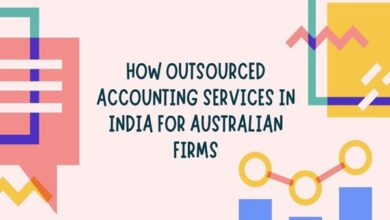What’s it Like to Work in Australia

Australia has long been a popular destination for those seeking better job opportunities, a higher quality of life, and a chance to experience a diverse culture. Whether you’re an expat looking to work in Australia or a local navigating the workforce, it’s important to understand the country’s working culture, employment rights, and opportunities. In this article, we explore the key aspects of working in Australia, from job hunting to workplace etiquette and everything in between.
Job Market in Australia
Australia’s job market is robust, with opportunities across a wide range of industries. The country’s economy is diverse, with strong sectors in healthcare, finance, technology, engineering, mining, education, and agriculture. In recent years, Australia’s tech industry has boomed, offering numerous job prospects for those with skills in software development, digital marketing, data analysis, and AI. Similarly, healthcare professionals like doctors, nurses, and allied health workers are in high demand across the nation.
Unemployment rates in Australia are generally low, though they can fluctuate depending on global economic conditions. The Australian government supports job seekers with various initiatives, such as the JobSeeker program, which helps unemployed individuals find suitable work.
Work Visa Options for Expats
If you’re an expat considering a move to Australia for work, it’s essential to understand the visa options available. Australia has a points-based immigration system that favours skilled workers, meaning those with in-demand skills have a higher chance of securing a work visa.
Some of the most common work visas include:
Skilled Independent Visa (subclass 189): This visa is for skilled workers who are not sponsored by an employer, family member, or state/territory. Applicants are assessed based on their age, skills, work experience, and English proficiency.
Employer Nomination Scheme (subclass 186): This visa is for workers who are sponsored by an Australian employer to fill a skilled position.
Temporary Skill Shortage Visa (subclass 482): This is for foreign workers who are sponsored by an employer to fill a short-term or medium-term role in Australia. It allows workers to live and work in Australia for up to four years.
Each visa type has specific requirements, so it’s crucial to consult with the Australian Department of Home Affairs or a migration agent to determine the best option for you.
Workplace Culture and Etiquette
Australia is known for its relaxed, friendly, and inclusive workplace culture. Australians value work-life balance, and the work environment is generally informal. However, professionalism is still highly regarded, especially in industries like finance, law, and healthcare.
In most Australian workplaces, open communication is encouraged. Employees are expected to contribute to discussions and share ideas. Hierarchies tend to be flat, and managers are approachable, often on a first-name basis with their teams. This culture of inclusivity helps foster creativity, teamwork, and employee satisfaction.
Punctuality is important in Australia, especially in professional settings. Arriving late to meetings or work is generally frowned upon and can be seen as disrespectful. Australians appreciate efficiency and a strong work ethic, so it’s important to meet deadlines and demonstrate your commitment to your role
Additionally, Australians are known for their sense of humour, so casual banter and light-hearted conversations are common in the workplace. However, it’s important to be mindful of cultural sensitivities and avoid making jokes that could be deemed inappropriate or offensive.
Pay and Benefits
Australia has a strong labour rights system that ensures workers are compensated fairly. The minimum wage in Australia is one of the highest in the world, and it is regularly reviewed by the Fair Work Commission. In addition to the minimum wage, many employees in Australia are entitled to various benefits.
Work-Life Balance and Holidays
Australia places a strong emphasis on work-life balance, and it’s not uncommon for employees to enjoy flexible working hours or the ability to work from home. The standard workweek in Australia is generally 38 hours, and many companies offer flexibility to accommodate personal commitments, such as family or health needs.
Australians enjoy a number of public holidays throughout the year, including New Year’s Day, Easter, ANZAC Day, and Christmas. Depending on your employer, you may be entitled to additional days off or be compensated for working on a public holiday.
In addition to paid annual leave, employees are also encouraged to take time off for personal and mental health reasons. Many workplaces offer a supportive environment where employees can take mental health days without fear of stigma.
Networking and Professional Development
Networking is a key part of career development in Australia. Joining professional associations, attending industry events, and connecting with colleagues on LinkedIn are all valuable ways to build relationships and stay informed about new job opportunities.
Many Australian companies also place a strong emphasis on professional development. Employees are often encouraged to participate in training programs or take on new challenges that will help them advance in their careers. Whether it’s through formal education, mentorship, or on-the-job training, Australians recognise the importance of continuous learning in the workplace.
Coworking Spaces
For those who prefer a more structured and private working environment, private office Melbourne services offer a dedicated workspace with all the essential amenities for productivity. This option is ideal for professionals who require a quiet, focused atmosphere.
On the other hand, if you thrive in a collaborative, flexible setting, a coworking space in Melbourne might be the perfect fit. These spaces foster networking and creativity, offering a dynamic environment to interact with like-minded individuals.
Working in Australia offers a wealth of opportunities for both locals and expats. With its strong economy, excellent pay and benefits, and a work culture that values balance, flexibility, and inclusivity, Australia remains one of the top destinations for those seeking a rewarding career. By understanding the local job market, visa options, workplace culture, and employee rights, you’ll be better prepared to embark on a successful career in this beautiful and thriving country.




